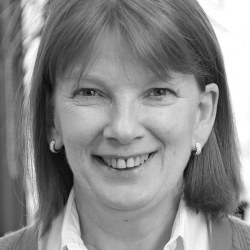Open Schooling together
In the Horizon 2020 research framework programme the European Commission recognized the need to encourage citizens to engage in science through formal and informal science education, and promote the diffusion of science-based activities, namely in science centres and through other appropriate channels. This priority led the Commission to launch several calls for Open Schooling and collaboration on science education. OStogether is a collaboration of the currently running Horizon 2020 projects in this thematic area, aiming to showcase different ways to reach the same objective and therefore providing impactful evidence to trigger systemic change.
Q. Thank you for accepting our invitation! Could you tell us something more on the origins of the open schooling concept and links to the EU goals, other initiatives and policies?
Karen Slavin: Thank you for inviting me – it’s a pleasure to talk to you! The open schooling concept came from the recommendations drawn by the expert group on science education in the report to the European Commission Science Education for Responsible Citizenship. It focused on how we could look into science education going forward, taking into consideration new global challenges.
The concept sounded very appealing to me. What I like about it is that you can imagine it in a small scale, a medium scale and a big scale. It can be scaled up or scaled down depending on where we are. I was asked to draft a couple of calls for projects in this theme. They turned out to be very popular and very successful. But not only that, I’m hearing it more and more in other areas where looking into community building and public engagement is very much in vogue.
Q. What is the ambition of the Commission in regards to citizens engagement in science through formal and informal science education?
Karen Slavin: Science education and public engagement will feature in the Work Programmes of the forthcoming Research framework programme Horizon Europe. We would like to mainstream these areas more and more where for instance the new Horizon Europe missions, and other funding mechanisms, would be obliged to encourage public engagement and educate local communities in their field of research and/or innovation. We would like to see the missions’ funded projects, for example related to health and climate, being obliged to offer short internships to school students and citizen engagement opportunities to local communities. We need to get citizens engaged in these areas. At the moment, we are trying to convince colleagues across different Commission departments to engage with citizens.
Ultimately, we need more researchers, scientists and innovators in Europe. We also need a science-literate society to prevent people scare-mongering and to benefit from the knowledge learnt. We have discovered that if citizens understand something, they will take ownership and retain interest. Recycling is a good example. The concept is old but only now have we better arguments to believe in it and take ownership
Q. How do the open schooling projects fit into the general need of educational /systemic reform?
Karen Slavin: The important element about open schooling is building projects and educating in communities. Every year, the Commission, and other funding bodies, invest millions of euros in research but often the locals know nothing about this research happening in their back yards. We want to open up these areas to the schools and the public. It has to be a win win situation for all. Open schooling is another cog in the science education wheel! But it’s an interesting one and potentially a very important one. It should also be quite easy to implement and hopefully to reap the rewards quite quickly. And ultimately it is another way to get people interested in science and talking about science!
Q. Why the projects in this theme are important, what outcomes have already been achieved, what is expected from the currently running projects?
Karen Slavin: These projects are important as they reach out to local communities. They are also very important as their results will feed into future EC STEM policy. The reason for funding these projects hasn’t changed. We want Europeans to take ownership of current scientific discourse and to do that we need a science literate society. As I said at the start, we need more scientists, researchers and innovators in Europe and the best way to achieve these goals is to start with education.
I would like to see some of the OS projects being funded to focus on Europe’s pressing needs: the European Green Deal and digitalization.
Q. How has the current situation linked to the Covid19 pandemic changed the current discussion or expectation towards the education-related projects?
Karen Slavin: That’s a very interesting question! One of my jobs is managing EUCYS – the European Union Contest for Young Scientists. It’s an annual European science competition. It should have taken place in Salamanca in September but due to COVID was postponed. It will now take place this year. In the meantime, many of the EUCYS feeder contests managed to go on-line and organized their competitions virtually. I think post-COVID the world will be much more virtual.
As the world becomes more computer literate, we must be cognizant of those less fortunate and ensure that poorer communities are not left behind. We don’t want a bigger divide post COVID.
Q. Any final comments?
Karen Slavin: What you are proposing with OStogether is a great idea! I look forward to keeping in touch and hearing your news. We should meet up again in a year or so you can share news on the project. I wish you all the very best. Thank you.

